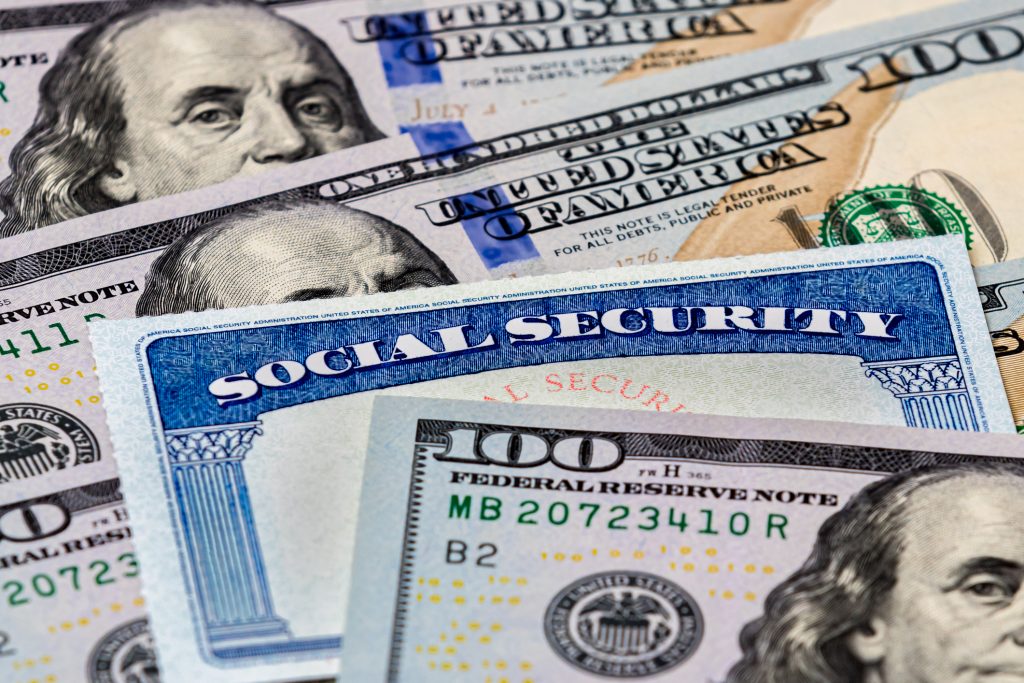The chances of a U.S. recession are increasing, according to a CNBC survey of analysts, fund managers, and strategists. Polymarket, a top prediction market, has seen a surge in bets on an economic downturn. Commerce Secretary Howard Lutnick recently told CBS News that President Trump’s policies are “worth it” even if they lead to a recession.
Federal programs such as Social Security might seem to be largely immune from the effects of a recession, but they’re not. Here are five ways a recession could impact Social Security in the long run.
Where to invest $1,000 right now? Our analyst team just revealed what they believe are the 10 best stocks to buy right now. Learn More »

Image source: Getty Images.
1. Reduced payroll tax revenue
Social Security is funded by FICA payroll taxes that flow into two trust funds: the Old-Age and Survivors Insurance (OASI) Trust Fund and the Disability Insurance (DI) Trust Fund. Perhaps the biggest effect of a U.S. recession on Social Security would be a reduction in the revenue the program receives from FICA payroll taxes.
Employers and employees each pay 6.2% of employees’ wages (up to a taxable maximum) to fund Social Security. If fewer people are employed, Social Security receives less money. Unsurprisingly, unemployment rates tend to rise when the U.S. economy is in a recession.
2. Increased Social Security benefit claims
There’s another side effect of rising unemployment during a recession that can impact Social Security. When older Americans lose their jobs, they’re more likely to claim early Social Security retirement benefits. The earliest age for claiming is 62.
The Social Security Administration (SSA) analyzed the impact of the Great Recession that began in late 2007 and went through mid-2009. The agency found that the percentage of men claiming benefits at age 62 jumped from 33.5% in 2007 to 35.8% in 2009. The percentage of women claiming benefits at age 62 rose from 36.3% in 2007 to 38.9% in 2009.
The National Bureau of Economic Research (NBER) also conducted an analysis that showed the number of Social Security disability claims increases during a recession. NBER offered two theories for why this happens: individuals’ health worsens during recessions with more people becoming eligible for Social Security disability insurance, and more people apply for Social Security disability during a recession because unemployed individuals don’t have to give up their job to apply.
3. Reduced cost-of-living adjustments (COLAs)
Social Security beneficiaries could directly feel the impact of a recession through reduced cost-of-living adjustments (COLAs). Why? Social Security COLAs are based on inflation. The inflation rate typically declines during a recession.
Note, though, that there can be exceptions. For example, the Social Security COLA that went into effect in 2009 was 5.8%. This adjustment, reflecting a spike in inflation, was much higher than the 2.3% COLA received in 2008. In 2010, there was no COLA.
4. Accelerated depletion of Social Security trust funds
The combination of lower payroll tax revenue and increased benefit claims during a recession, albeit mitigated somewhat by reduced COLAs, could lead to an accelerated depletion of the two Social Security trust funds. These trust funds are currently on track to run out of money in 2035.
Keep in mind that Social Security won’t go bankrupt if the trust funds are depleted. Ongoing payroll taxes would still cover a large portion of benefit payments. However, significant benefit cuts would be required.
5. Increased pressure for major reforms
Are there any positive effects on Social Security from a recession? Maybe. It’s possible that a marked acceleration in the depletion of the program’s trust funds could increase pressure on politicians to enact major reforms that bolster Social Security’s finances.
Plenty of ideas for putting Social Security on a firmer financial footing have been put forward in the past, including raising the taxable maximum for FICA taxes and gradually increasing the full retirement age. So far, the urgency to do something hasn’t been great enough to spur Congress to act. However, a recession just might change the political dynamics.
The $22,924 Social Security bonus most retirees completely overlook
If you’re like most Americans, you’re a few years (or more) behind on your retirement savings. But a handful of little-known “Social Security secrets” could help ensure a boost in your retirement income. For example: one easy trick could pay you as much as $22,924 more… each year! Once you learn how to maximize your Social Security benefits, we think you could retire confidently with the peace of mind we’re all after. Simply click here to discover how to learn more about these strategies.
View the “Social Security secrets” »
The Motley Fool has a disclosure policy.
 benzinga.com
benzinga.com fool.com
fool.com



